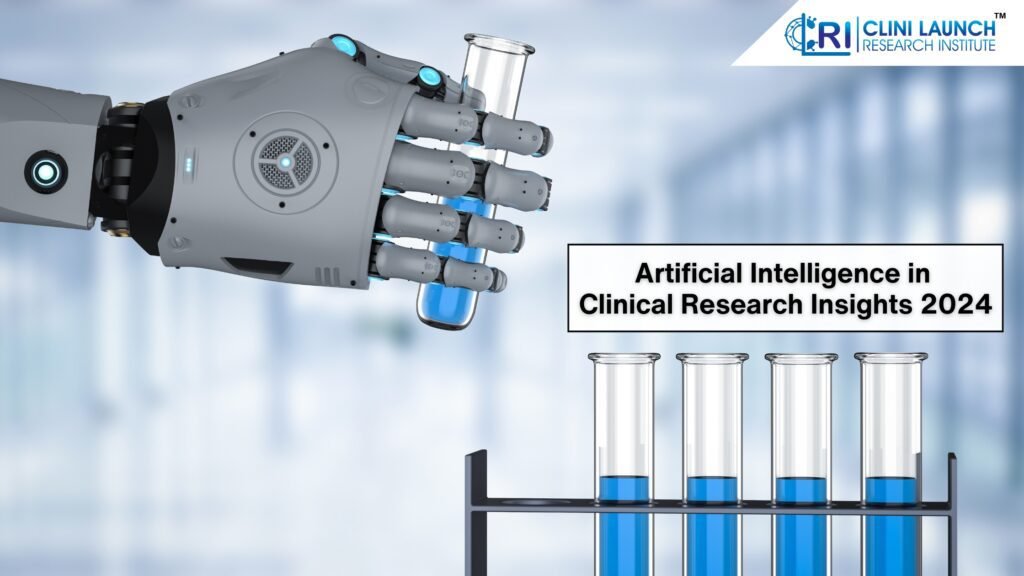Artificial intelligence (AI) has emerged as a pivotal force across numerous industries, and the healthcare sector stands to benefit immensely from its potential. Within the domain of clinical research, AI is demonstrating its capacity to revolutionize traditional methodologies. This article explores the critical role of artificial intelligence in clinical research, examining its applications, the substantial impact of AI on clinical trials, and its potential to redefine the trajectory of medical science.
By comprehending the challenges inherent in conventional clinical research and the innovative solutions AI offers, we can unlock new avenues for enhancing patient outcomes and accelerating scientific progress.
Overcoming the Challenges with Artificial Intelligence in Clinical Research

Traditional clinical research methodologies are encumbered by significant challenges that hinder efficiency and escalate costs. The financial burden associated with conducting clinical trials is a primary obstacle. The intricate nature of research, encompassing patient recruitment, data collection, and analysis, significantly extends timelines, delaying the introduction of novel treatments and therapies. Moreover, identifying suitable patient populations for clinical trials is a time-consuming and resource-intensive endeavour.
The voluminous data generated in clinical research demands robust data management systems, which can be challenging to implement and maintain. Collectively, these factors undermine the efficiency and efficacy of traditional clinical research methodologies, necessitating innovative approaches such as the integration of artificial intelligence to enhance the overall impact of AI on clinical trials.
Artificial Intelligence as a Transformative Force

Artificial intelligence (AI) is rapidly transforming clinical research. By harnessing AI, researchers can address challenges such as inefficient patient recruitment and lengthy trial timelines. AI applications, including image analysis, predictive modelling, and patient stratification, are driving innovation. AI-powered tools can accurately detect diseases, predict patient outcomes, and optimize treatment plans. Moreover, AI accelerates drug discovery by analyzing vast datasets.
The integration of AI applications in healthcare research is profound, enabling researchers to extract valuable insights from complex data. By optimizing patient recruitment and clinical trial design, AI streamlines processes and accelerates drug development. The impact of AI on clinical trials is undeniable, as it empowers researchers to make data-driven decisions and improve patient outcomes.
The role of machine learning is paramount in AI’s success. Machine learning algorithms enable AI systems to learn from data, making accurate predictions. As machine learning advances, AI’s potential to revolutionize healthcare will grow, ultimately improving patient care.
The Benefits of AI in Clinical Research
The integration of artificial intelligence (AI) is poised to revolutionize the landscape of clinical research. By harnessing AI’s capabilities, researchers can significantly enhance efficiency, reduce costs, and ultimately, improve patient outcomes. The application of AI applications in healthcare research offers a plethora of opportunities to optimize the clinical research process.
One of the most significant benefits of AI lies in its ability to accelerate drug discovery. By analyzing vast datasets, AI algorithms can rapidly identify potential drug candidates, reducing the time and cost associated with traditional methods. This expedited process has the potential to bring life-saving therapies to patients more quickly. Additionally, AI can optimize clinical trial design and execution, leading to more efficient resource allocation and faster recruitment of participants.
Another critical advantage of AI is its capacity to enable personalized medicine. By analyzing patient-specific data, AI algorithms can identify optimal treatment plans, increasing the likelihood of successful outcomes. This precision medicine approach holds the potential to revolutionize healthcare by tailoring treatments to individual patient characteristics.
The role of machine learning in medical research is paramount in realizing the full potential of AI in clinical research. By utilizing machine learning algorithms, AI systems can analyze complex data sets, identify patterns, and make predictions, ultimately leading to more accurate diagnoses, effective treatments, and improved patient outcomes.
The Future of Artificial Intelligence in Clinical Research

The future of clinical research is inextricably linked to advancements in artificial intelligence (AI). As AI technologies continue to evolve, their potential to address complex diseases and unmet medical needs becomes increasingly apparent. The integration of AI applications in healthcare research will be instrumental in shaping the future of medicine.
Ethical considerations and robust regulatory frameworks will be crucial as AI assumes a more prominent role in clinical research. It is imperative to ensure that AI systems are developed and deployed responsibly, with a focus on patient safety and data privacy. As the field of machine learning in medical research matures, we can anticipate groundbreaking innovations that will transform the way we diagnose, treat, and prevent diseases.
Conclusion
The integration of artificial intelligence (AI) into clinical research holds immense potential to revolutionize healthcare. By harnessing AI’s capabilities, researchers can significantly enhance efficiency, reduce costs, and accelerate the development of new treatments. The impact of AI on clinical trials is already evident, with applications in image analysis, predictive modelling, and patient stratification demonstrating promising results.
As AI continues to evolve, the role of machine learning in medical research will become increasingly critical. The integration of AI into standard clinical research practices is likely to become the norm, leading to a future where personalized medicine and precision healthcare are the standard of care.
Ready to harness the power of AI in clinical research? Enroll in CliniLaunch today and gain the expertise to lead innovation in healthcare.

Krishna Talreja
Dynamic content marketing professional with expertise in brand storytelling and strategic content creation. Adept at managing diverse content projects, driving engagement, and enhancing brand visibility across multiple platforms.





